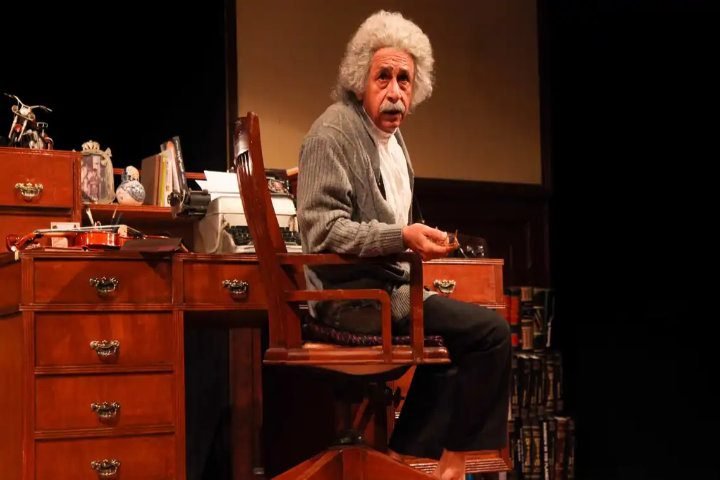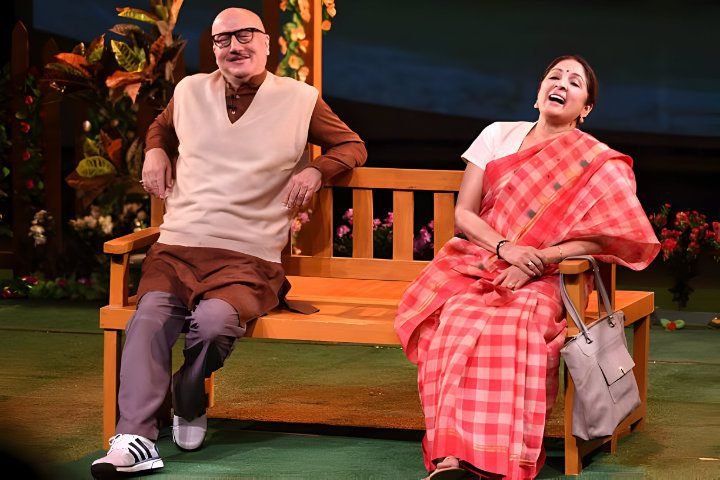India, a nation of diverse cultures and languages, also possesses a wide range of media forms; besides conventional media channels that often dominate public conversation, there exists a different, more democratic side of media that is subtly transforming the nation.
In This Article
This media is participatory, community-driven, and deeply rooted in grassroots. From the Himalayan foothills to the southernmost tip, community media in India is constructing a path of empowerment and transformation for a significant population.
In its broadest definition, mass media is a collective communication outlet that helps to store and distribute information. However, media are not restricted to traditional print or digital formats.
There is a powerful entity known as participatory media, community media, or grassroots media, in which the audience actively identifies, collects, analyses, and disseminates content.
Characteristics of Community Media in India
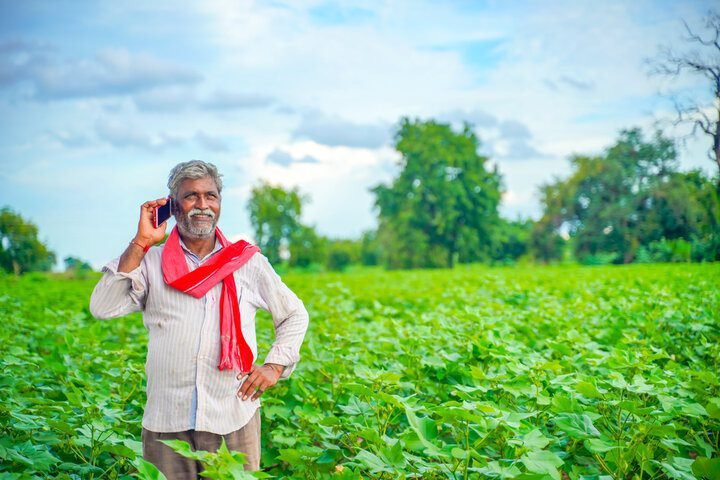

Power of Participation: Participatory media is a powerful tool for development in India for several reasons:
Community Empowerment: It allows communities to express their concerns and voices, frequently unheard in mainstream media.
Community Participation: Participatory media utilizes the natural ability of media as a tool for social change by integrating the community in content generation and dissemination.
The Development Perspective: From the standpoint of social development, participatory media is a force that enables communities to recognize their problems and collaborate on long-term solutions.
It acts as a catalyst for change, bridging the gap between the haves and the have-nots and ensuring that grassroots voices are heard loud and clear.
Access for All: Accessibility is one of India’s distinguishing aspects of community media. Community media, unlike traditional media, does not require conventional literacy.
It thrives on localized content, which serves as a window for the rest of the world to learn about the problems impacting these communities. This democratization of media ensures that marginalized voices, often silenced by mainstream outlets, find a way of expression.
Bridging Knowledge Gaps: A significant component of community media, participatory video enables the dissemination of local knowledge and experiences to scientists, decision-makers, and policymakers at the local, national, and international levels. This knowledge-sharing serves as a cornerstone for achieving sustainable development and social change.
Community Radio in India
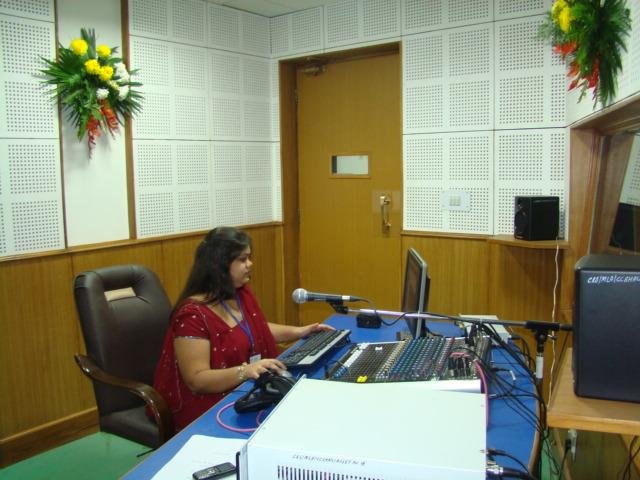

The evolution of community media in India can be traced back to the landmark judgment of the Supreme Court in February 1995, which declared that ‘airwaves are public property.’ This verdict laid the foundation for legitimizing community radio in the country.
Until 2006, only educational institutions could establish campus radio stations with a limited transmission range of 10-15 kilometers.
However, on November 16, 2006, the Community Radio Guidelines expanded the scope, allowing non-profit agencies, agricultural research institutes, and schools to set up community radio stations.
These stations were encouraged to involve local communities in content creation, ensuring community voices were accurately reflected.
Despite the potential for community radio to serve as a powerful tool for grassroots communication, there are challenges to its growth in India. As of August 2023, 435 commissioned community radio stations have valid GOPA[i] in India.
The Ministry of Information and Broadcasting has started a Broadcast Seva Portal at www.new.broadcastseva.gov.in for eligible organizations to apply. According to media reports[ii], India has 388 FM radio stations in 113 cities across 26 states and five Union Territories.
In comparison, another 808 FM radio stations across 284 cities are planned under a third batch of e-auction. This disparity raises questions about the regulatory environment and support for community media in India. Read more about development of radio as mass communication tool here.
Government Control and Independence
In India, community radio has been permitted to flourish to a certain extent, although there are concerns regarding its independence.
The Ministry of Information and Broadcasting (I&B) allows community radio stations to transmit translated All India Radio (AIR) news bulletins and non-news ‘information’ such as traffic and weather updates.
Nonetheless, this frequently forces community radio stations to operate as government mouthpieces instead of genuine representations of the community’s issues.
Case Study: Sangham Radio – 90.4 MHZ
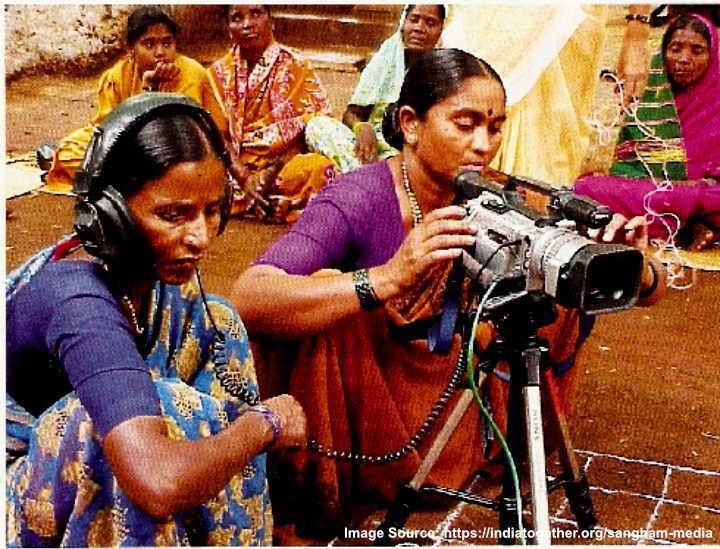

Launched on October 15, 2008, Sangham Radio is a shining example of community media’s potential.
Operating in the Telugu language, this radio station was founded on the principle that mainstream media often neglects rural people, especially women from marginalized sections, treating them merely as consumers rather than content producers.
Sangham Radio has broken this pattern. More than 2,500 women actively contribute to the station’s programs. Every day, at least ten women from different villages converge to discuss, debate, sing, tell stories, participate in plays, and engage in recordings.
The station’s content spans various topics, including farming, crops, the nuances of language, folk culture, dialogues on in-law relationships, and food. Sangham Radio is a prime example of how community media can become a platform for addressing pressing local issues.
The Power of Local Journalism
In Bherwa Village, Jharkhand, the local postman’s son was offering money in exchange for Aadhar Cards, highlighting corruption in the system. Mukesh, a Dalit activist and Community Correspondent with Video Volunteers exposed this story, demonstrating how community media can uncover and rectify systemic problems.
Similarly, in Raigadh, Chhattisgarh, three tribal farmers lost their lands unlawfully to Navdurga Pvt. Ltd., a sponge-iron company. These farmers were unaware of the laws that protected their land.
Using community media, Rajesh mobilized the entire village to support them and created a video exposing the whole issue. This case illustrates how community media has become a powerful tool for advocacy and change at the grassroots level.
CGNet Swara: A Voice for the Unheard
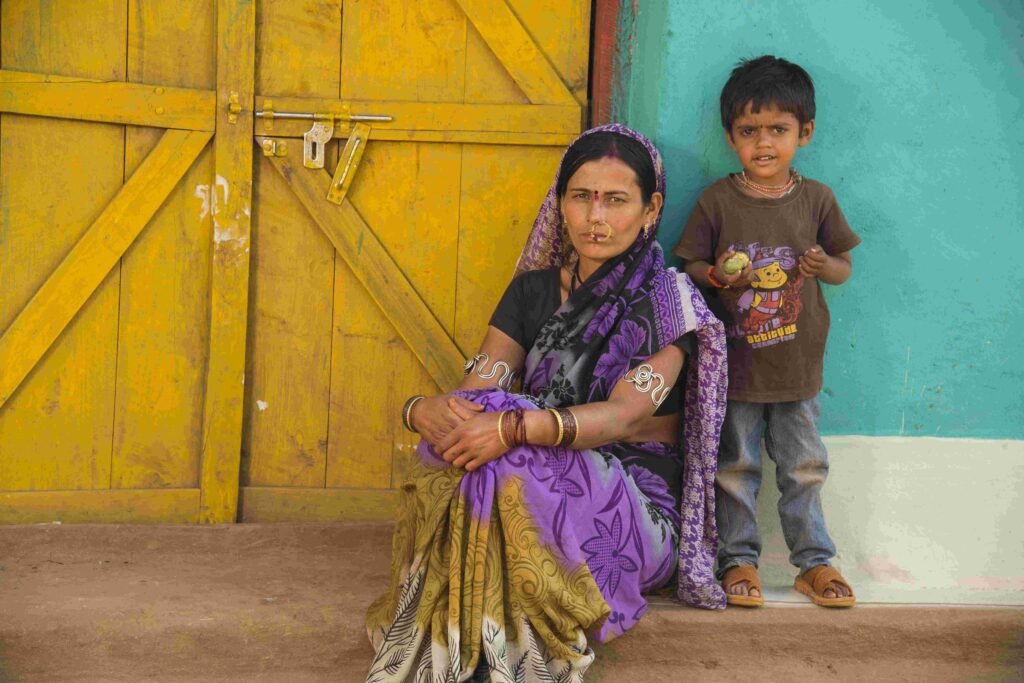

The people of a remote tribal community in the Raigarh district of Chhattisgarh faced a dire situation. Due to the absence of suitable roads, they could not get pregnant women to the hospital in time, resulting in two monthly deaths.
Their pleading for assistance was broadcast beyond the confines of their village via CGNet Swara, a voice-based news platform that lets anybody report and listen to local news stories.
A villager recorded a message outlining their desperate circumstances and pleading for someone to tell district collector Mukesh Bansal of their plight. Someone from New Jersey surprisingly discovered this message on CGNet Swara’s website and contacted the collector, bridging the gap between distant Indian communities and the worldwide community.
Conclusion
Community media in India is a dynamic force for change and development. It embodies the spirit of inclusivity, empowers marginalized voices, and addresses local issues often unnoticed by mainstream media. However, it also faces challenges, including government control and limited growth.
In India, it is essential to acknowledge the revolutionary power of community media. Whether through community radio stations such as Sangham Radio or innovative platforms such as CGNet Swara, these initiatives demonstrate how grassroots communication can break down boundaries, empower unheard voices, and facilitate positive change.
In an era where media plays a significant role in influencing society, community media in India exemplifies the power of local journalism and the determination of communities eager to be heard. A more inclusive and participatory media landscape in India and beyond may flourish by understanding, supporting, and interacting with community media.
[i] The Grant of Permission Agreement (GOPA) is an agreement that needs to be signed by the Deputy Director of the Community Radio (CR) cell. The GOPA is part of the “Policy Guidelines for Setting up Community Radio Stations in India”.
[ii] https://www.indiatoday.in/india/story/anurag-thakur-announces-e-auction-of-808-fm-radio-stations-2410675-2023-07-23


